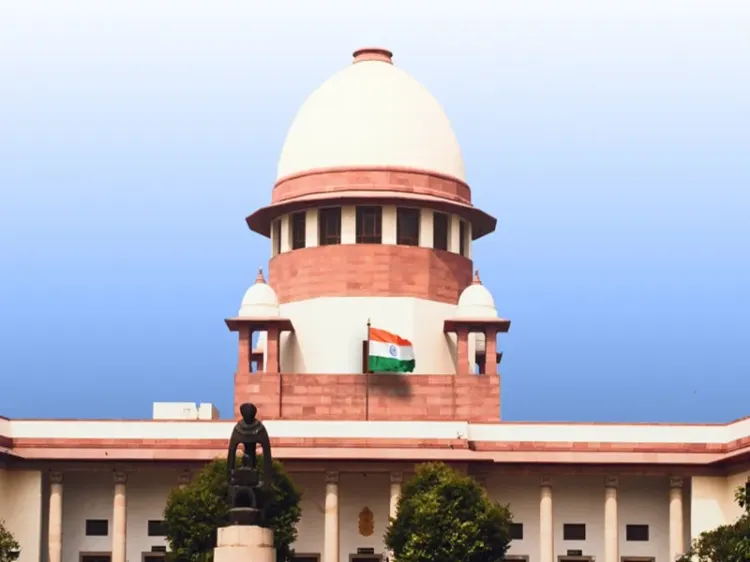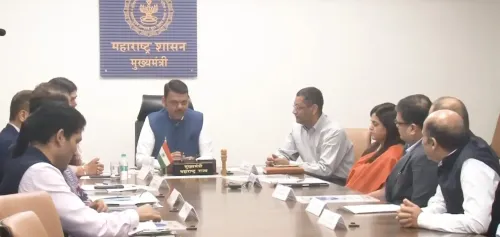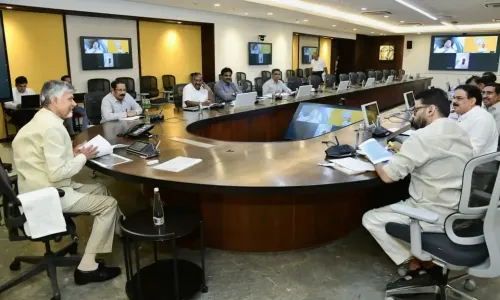Chhattisgarh Liquor Scam: Supreme Court Offers Bail to Former IAS Anil Tuteja

Synopsis
Key Takeaways
- Anil Tuteja granted bail by the Supreme Court.
- Case linked to the Chhattisgarh liquor scam.
- Over 30 witnesses still need to be examined.
- The Chhattisgarh High Court's recent ruling favored Tuteja.
- The scam allegedly cost the state Rs 2,100 crore.
New Delhi, Apr 15 (NationPress) The Supreme Court on Tuesday granted bail to retired IAS officer Anil Tuteja in connection with a money laundering case associated with the alleged Chhattisgarh liquor scam.
The Enforcement Directorate (ED) branded Tuteja, who is known to have had a close relationship with the former Chhattisgarh Chief Minister Bhupesh Baghel, as the alleged mastermind behind this liquor fraud.
In granting bail, a bench led by Justices Abhay S. Oka and Ujjal Bhuyan recognized that Tuteja has spent over a year in custody, and noted that more than 30 witnesses are yet to be examined in the trial proceedings.
Furthermore, the bench highlighted that the Chhattisgarh High Court has recently overturned the special court’s decision to take cognizance, citing the absence of required sanction from the ED as per legal stipulations.
The apex court instructed the relevant sessions court to release Tuteja on bail, subject to strict conditions that would be determined after consulting the ED.
The money laundering probe originated from an FIR filed by the Anti-Corruption Bureau (ACB) and the Economic Offences Wing (EOW) in Chhattisgarh, involving various sections of the Indian Penal Code, 1860, and the Prevention of Corruption Act, 1988.
The ED alleged that a criminal syndicate, which included high-ranking state officials, private parties, and politicians, was operating in Chhattisgarh, engaging in illegal bribe collection by asserting dominance over government departments. Their investigation uncovered several methods through which this scam was executed between 2019 and 2022.
Initially, the ED reported that bribes were solicited from various distillers for each liquor case procured by the Chhattisgarh State Marketing Corporation Limited (CSMCL). Additionally, the illegal sale of unaccounted “kacha” liquor generated substantial revenue for the syndicate, with none of the proceeds reaching the state treasury. This illicit liquor was sold through state-operated shops. Furthermore, bribes were collected from distillers to aid in cartel formation and allocate fixed market shares. Commissions were also charged from licensees involved in the foreign liquor sector.
The ED estimates that the scam resulted in a staggering loss to the state treasury, exceeding Rs 2,100 crore, which was misappropriated by the syndicate.
In April of the previous year, the Supreme Court had annulled a money laundering complaint lodged by the ED against Tuteja, Yash Tuteja, Anwar Dhebar, and others based on a charge sheet from the Income Tax Department. The court ruled that the provisions of the Prevention of Money Laundering Act (PMLA) were inapplicable, as there was no prima facie scheduled offense under the PMLA.









